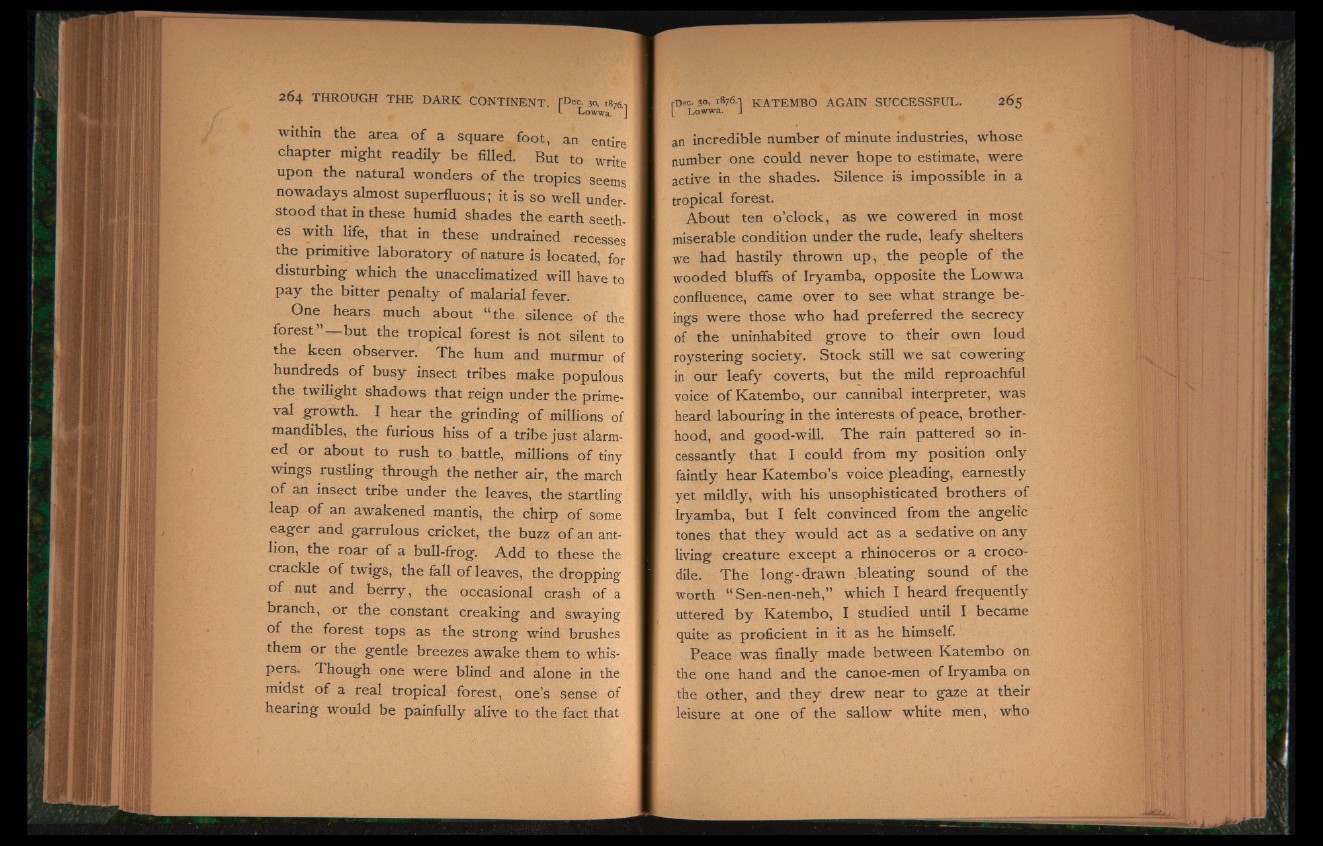
within the area of a square foot, an entire
chapter might readily be filled. But to write
upon the natural wonders of the tropics seems
nowadays almost superfluous; it is so well understood
that in these humid shades the earth seethes
with life, that in these undrained recesses
the primitive laboratory of nature is located, for
disturbing which the unacclimatized will have to
pay the bitter penalty of malarial fever.
One hears much about “ the silence of the
forest ’’— but the tropical forest is not silent to
the keen observer. The hum and murmur of
hundreds of busy insect tribes make populous
the twilight shadows that reign under the primeval
growth. I hear the grinding of millions of
mandibles, the furious hiss of a tribe just alarmed
or about to rush to battle, millions of tiny
wings rustling through the nether air, the march
of an insect tribe under the leaves, the startling
leap of an awakened mantis, the chirp of some
eager and garrulous cricket, the buzz of an ant-
lion, the roar of a bull-frog. Add to these the
crackle of twigs, the fall of leaves, the dropping
of nut and berry, the occasional crash of a
branch, or the constant creaking and swaying
of the forest tops as the strong wind brushes
them or the gentle breezes awake them to whispers.
Though one Were blind and alone in the
midst of a real tropical forest, one’s sense of
hearing would be painfully alive to the fact that
rDec. 30, 1876.-1 k a t e m b o a [ g a i n s u c c e s s f u l . 265 Lowwa. J
an incredible number of minute industries, whose
number one could never hope to estimate, were
active in the shades. Silence is impossible in a
tropical forest.
About ten o’clock, as we cowered in most
miserable condition under the rude, leafy shelters
we had hastily thrown up, the people of the
wooded bluffs of Iryamba, opposite the Lowwa
confluence, came over to see what strange beings
were those who had preferred the secrecy
of the uninhabited grove to their own loud
roystering society. Stock still we sat cowering
in our leafy coverts, but the mild reproachful
voice of Katembo, our cannibal interpreter, was
heard labouring in the interests of peace, brotherhood,
and good-will. The rain pattered so incessantly
that I could from my position only
faintly hear Katembo’s voice pleading, earnestly
yet mildly, with his unsophisticated brothers of
Iryamba, but I felt convinced from the angelic
tones that they would act as a sedative on any
living creature except a rhinoceros or a crocodile.
The long-drawn bleating sound of the
worth “ Sen-nen-neh,” which I heard frequently
uttered by Katembo, I studied until I became
quite as proficient in it as he himself.
Peace was finally made between Katembo on
the one hand and the canoe-men of Iryamba on
the other, and they drew near to gaze at their
leisure at one of the sallow white men, who